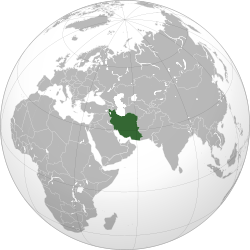Non-Aligned Countries Reveal No Solidarity – OpEd
By VOR
By Ilya Kharlamov
The 16th summit of the Non-Aligned Movement which was hosted by Tehran this week, was marred by scandals. The Syrian delegation walked out of the conference room after the Egyptian president spoke in support of the Syrian opposition, while UN Secretary-General Ban Ki-moon slammed Iran for its refusal to recognize the Holocaust and urged it to make its nuclear program more open.
More than 100 countries took part in the six-day summit. Thirty six countries were represented by presidents, vice-presidents, or prime ministers. Attended by so many high-ranking officials, the summit has been described by many experts as successful, even though it has achieved no breakthroughs. The Non-Aligned Movement, the world’s second largest organization after the UN, unites about 120 member countries, while about 15 countries have observer status within the organization. Expert Yelena Melkumyan comments.

“The Non-Aligned Movement was founded during the Cold War as an organization not aligned formally with or against any major power bloc. That presented quite a challenge, even in those days. Nevertheless, the movement wielded a lot of influence back then. But there is no unity in its ranks now.”
This time Iran managed to bring the Non-Aligned countries together on the crisis in Syria. Even though countries of the Gulf chose to boycott the summit in connection with their disagreement with Tehran on Syria, Egypt chose to attend it. Egyptian President Mohamed Morsi has visited Iran for the first time in 30 years. Bilateral relations between Egypt and Iran were severed in 1979, after Egypt granted political asylum to the last Shah of Iran, Mohammad Reza Pahlavi. Morsi arrived in Tehran this week with a proposal that the four regional powers – Iran, Turkey, Saudi Arabia and Egypt – create a contact group on Syria.
Morsi’s speech, however, ended in scandal. The Egyptian president supported “valiant Palestinians and Syrians fighting against tyranny” and expressed solidarity with the Syrian people’s struggle against “the oppressive regime that had lost its legitimacy”. It was Egypt’s moral and ethical duty, he said, to openly support those who fought for freedom and democracy in Syria. This struggle, he said, should end in establishing a rule that would protect the interests of the Syrian people. Along with the Syrian delegation which walked out on hearing these words, the Iranian authorities, who support Syria’s President Bashar Assad, must have disliked this speech in support of the Syrian opposition as well.
Adzhar Kurtov of the Russian Strategic Evaluation Institute, comments.
“The Egyptian leader has opted for a radically different turn in the country’s foreign and domestic policies. After years of Sadat’s and Mubarak’s rule, the country plans to regain leadership in the region. Naturally, it would face other such hopefuls, first of all, Saudi Arabia and Iran. The plan for Syria which was presented by President Morsi before the Non-Aligned summit envisaged the need to take Iran’s position on Syria into account but was basically directed against the incumbent Syrian leadership.”
During his speech at the summit, Iran’s Supreme Leader, Grand Ayatollah Ali Khamenei, criticized Israel. He made no mention of the Syrian crisis but spoke strongly against the UN, which, he said, was trying to impose its values on the rest of the world. UN Secretary-General Ban Ki-moon, who wasn’t expected to attend the summit and whose decision to take part in it was opposed by the US, Canada, and Israel, took the floor right after the Iranian leader. In his reply speech, Ban Ki-moon criticized Iranian leaders for the denial of the Holocaust and for threats to destroy Israel. In addition, the UN chief urged Iran to implement all UN resolutions that introduced restrictions on its nuclear program. Otherwise, he said, this war of words could quickly deteriorate into a war of weapons.
